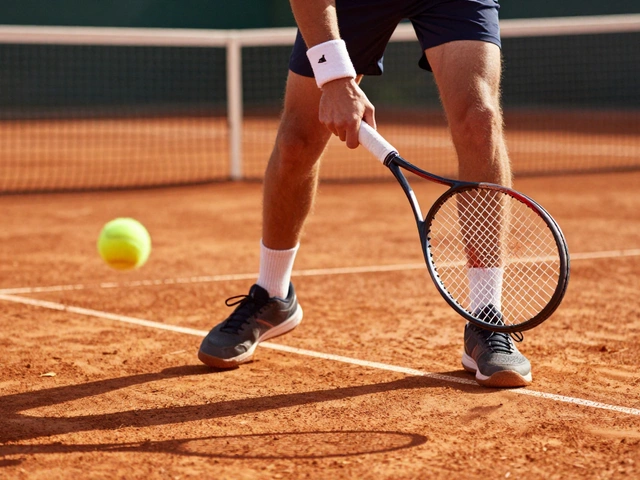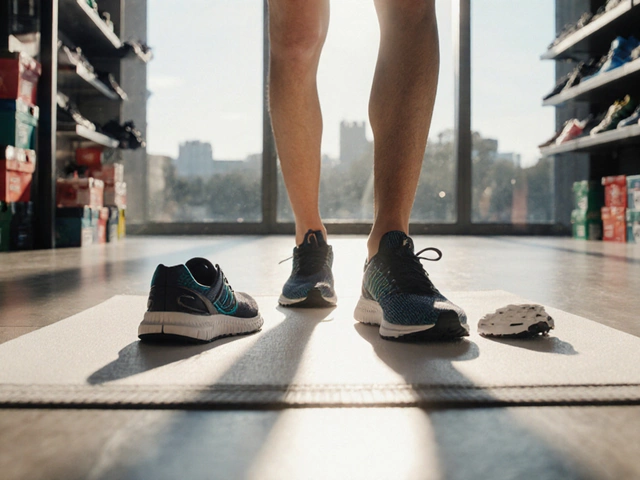Sustainable Diet: Nutrition, Superfoods & Eco‑Friendly Sports Tips
When talking about Sustainable Diet, a way of eating that meets nutritional needs while minimizing environmental impact, most people picture salads or veggie burgers. But it’s more than swapping a steak for a bean. It means choosing foods that support your body, your performance, and the planet at the same time. Sustainable diet isn’t a fad; it’s a practical approach that blends health science with everyday habits.
One of the core pillars is Superfoods, nutrient‑dense items like berries, leafy greens, nuts and legumes that pack a punch of vitamins, minerals and antioxidants. These power foods fuel recovery after a hard workout, keep energy steady during long training sessions, and help lower the carbon footprint because many are plant‑based and require fewer resources to grow. By adding a handful of blueberries or a serving of lentils to your daily menu, you get a natural performance boost without the environmental cost of meat‑heavy meals.
Why it matters for athletes and the planet
Nutrition itself is a key player in sports performance. Sports Performance, how well an athlete can train, compete and recover improves dramatically when the diet aligns with energy demands and repair needs. A sustainable diet supplies clean proteins, healthy fats and complex carbs that give muscles the building blocks they need, while also reducing inflammation thanks to antioxidants found in superfoods. The link is simple: Sustainable diet encompasses superfoods and supports sports performance. This relationship is why many coaches now recommend plant‑forward meals for endurance athletes.
But there’s another angle that often gets overlooked: the gear you use. Eco‑Friendly Equipment, sports gear made from recycled, biodegradable or low‑impact materials complements a sustainable diet by cutting down waste and emissions across the whole athletic lifestyle. When you choose a tennis racket with a bamboo frame or a running shoe made from ocean‑plastic fibers, you’re extending the sustainability chain from your plate to your practice field. This creates a full‑circle effect where eco‑friendly equipment relates to sustainable diet through shared environmental goals.
Putting it all together, the triple connection looks like this: Sustainable diet includes superfoods, superfoods boost sports performance, and eco‑friendly equipment reinforces the same sustainable principles. Each piece supports the next, forming a loop that benefits health, athletic output, and the earth. For anyone serious about leveling up in a sport—whether you’re hitting a forehand at the club or sprinting on a track—thinking about what you eat and what you wear becomes a competitive advantage.
Practical steps are easy to start with. First, audit your weekly meals: replace at least one meat‑based dinner with a bean‑based alternative, add a colorful side of seasonal veggies, and snack on nuts or fruit instead of processed chips. Second, look at your gear bag: ask if your racquet strings, shirt fabrics or shoe soles are made from recycled or organic sources. Third, track how you feel—notice quicker recovery, steadier energy, and even a lighter mood. These simple tweaks illustrate how Nutrition, the process of providing or obtaining the food needed for health and growth influences both personal performance and broader ecological impact.
Below you’ll find a curated set of articles that dive deeper into each of these topics. From superfood guides to equipment sustainability reviews, the collection gives you actionable insights to keep your diet and your sport in sync with a greener future.
Learn if you can lose noticeable weight in just 2 months, with a realistic calorie plan, balanced diet, smart workouts, and lifestyle tips to keep the loss healthy and sustainable.
READ MORE





